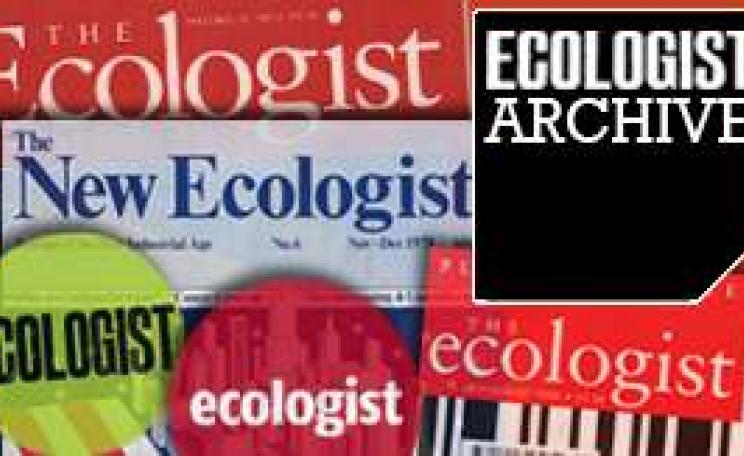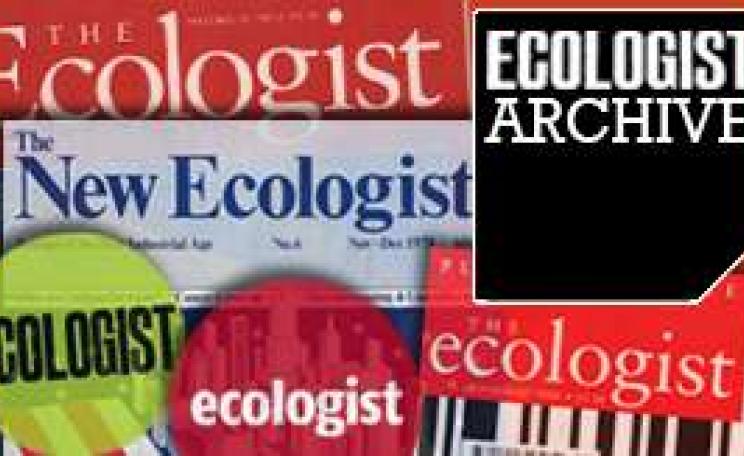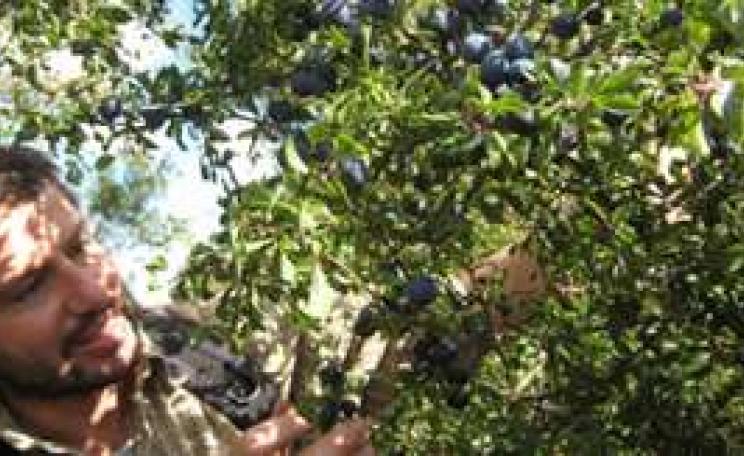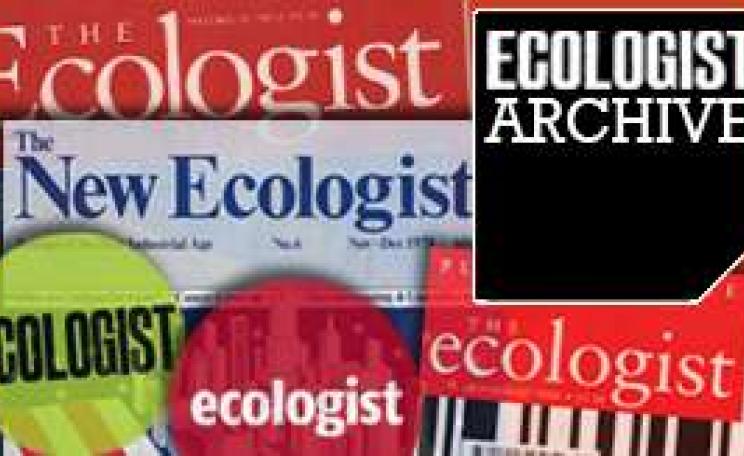I was out digging burdock roots for dinner and it set me thinking about nature’s cures – especially in relation to mental health.
Imagine a world where the will of the wild reigned supreme. In getting to the roots of that reality, sanity and health could be drawn up from the earth like the choicest of winter-sweet burdock roots; or perhaps more fruitfully, simply plucked from a tree as a juicy blush ripe wild apple might be.
Health with a capital ‘H’ is full, vibrant, wild, intoxicating, spontaneous and uncompromising health; it is mental, physical, emotional and spiritual. This is Health that is worlds removed from its more common and narrow definition, the five-a-day superfooding and Prozac popping reductive and chemically corrected variety in all its sickly masquerade. No, human health is a multiple or simultaneous equation with animals, plants, soil and sky informing the full-circling sum of world health.
I have always been fascinated by the story of Adam and Eve, their prelapsarian at-one-ness and postlapsarian struggle for atonement. I believe that any residual or collective ‘sin’ that blights our being in our own world is simply a barometer of our inability to allow our actions, thoughts and desires to be informed by this all embracing picture.
Such collective insanity reflects our divorce from and denial of the wild, of life and death in eternal and complimentary process, and inevitably results in the sin of sanctified environmental destruction.
The mental in environmental
Let’s imagine, then, casting this sin in the role of mental illness (which we can define as an internal mis-mapping of the world, an inevitable misconstrual of reality that invariably results in gross distortion, a ghoulish image in the reciprocal mirror of world-mind interconnectivity). What results is a dynamic of confusion, chaos and environmental catastrophe, our intentions floundering, subverted, jarring and stuttering as they morph grotesquely into behaviours expressing mere oddity, patent neurosis or total dysfunctionality. Rightly peeved, we might ask: How can this be? Is it inevitable? Sitting pretty ugly amid the status quo, heaving with self-contented sloth and mindlessness, ignorance would proclaim ‘yes!’ – and yet such ignorance, unless at some level wilful, is an ignorance stemming not from an absence of knowledge, but, on the contrary, from its overwhelming and mind-blowing abundance.
In darkest despair and reflecting in graphic modern parlance, we might consider that Adam, in conjunction with Eve, the serpent and all the other key players in the mythological drama, set in motion the greatest mindf**k of all time. For who can deny, with an abundant and exponential growth in knowledge, that humanity’s achievements have bordered on the miraculous, while simultaneously its foundations are pure images of hell? Such awareness can be completely overwhelming and quite literally soul-destroying, as evidenced by increasing drug and alcohol abuse, poor nutrition, record levels of obesity, diabetes, heart disease and the sedentary life’s other legion of degenerative ills – not to mention that a growing sense of alienation, loss of meaning, unprecedented level of depressive and other mental illnesses tend to create a somewhat cacophonic and despairing composition.
Which is where foraging comes in. It is to that perennial and well-founded belief in the restorative power of nature that we must turn. It is only through direct communication with nature, through repeated personal dialogue with the natural world, through forays, excursions and adventure, that our boundaries break down sufficiently for deep understanding to begin.
Stephen Buhner describes the situation thus in his book The Fasting Path (2003): ‘Reliance on two-dimensional sight begins to weaken, there is a thinning of the wall between us and all other things, and the organ of perception uniquely designed to perceive the sacred, the heart, begins to take on more and more importance.’
Through foraging we can move from an unhealthy introversion to an outward embracing of wild spontaneity. Foraging – for one’s very sanity – is therefore a wild possibility.
If the digging for the burdock roots set these trains of thought in motion then looking at the deliciously cooked plate of wild food in front of me uproots another...
The existence of this plate of wild food provides a lovely example of the existence and interconnectedness of all non-wild food elements, both material and immaterial – in fact, of the entire universe. For, in reality, it is not quite as it seems. Yes, it is a plate of ‘wild’ food, but it depends on non-wild elements to such an extent that if we were to remove them from the plate, there would be nothing left.
The woodland, the rain, the frying pan, the cooking oil and indeed myself – the cooker – are all non-wild food elements, as are the parents who produced me, the food that they eat, the industrialist who made the pan and so on.
Looking deeply at the plate of wild food before me, inspired by the enlightened teachings of Vietnamese Zen Master Thich Nhat Hanh, it is possible to see the presence of all these non-wild food elements in it and in doing so, become aware of the deeply intrinsic connections between things – humans, animals, plants, soil and sky. It is this way of seeing that connects us to the web of life and to the roots of sanity.
Reading
Wild: An Elemental Journey (2006) by Jay Griffiths
Mental Health and Well-Being in Animals (2005) by Franklin D Macmillan
Steps to an Ecology of Mind (1972) by Gregory Bateson
For information or to get in touch, visit www.wildmanwildfood.co.uk
This article first appeared in the Ecologist June 2008
For ethical and sustainable suppliers of Food and Drink goods and services check out the Ecologist Green Directory here







